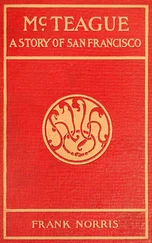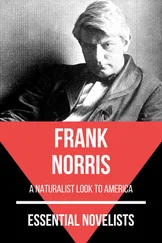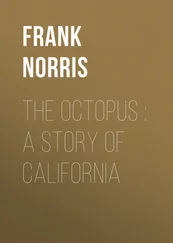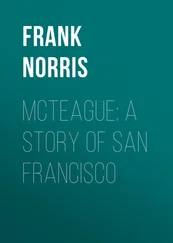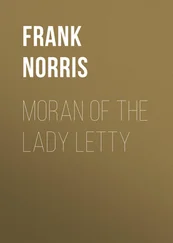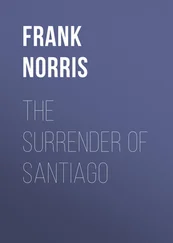Frank Norris - The Pit - A Story of Chicago
Здесь есть возможность читать онлайн «Frank Norris - The Pit - A Story of Chicago» — ознакомительный отрывок электронной книги совершенно бесплатно, а после прочтения отрывка купить полную версию. В некоторых случаях можно слушать аудио, скачать через торрент в формате fb2 и присутствует краткое содержание. Жанр: foreign_prose, literature_19, foreign_antique, на английском языке. Описание произведения, (предисловие) а так же отзывы посетителей доступны на портале библиотеки ЛибКат.
- Название:The Pit: A Story of Chicago
- Автор:
- Жанр:
- Год:неизвестен
- ISBN:нет данных
- Рейтинг книги:3 / 5. Голосов: 1
-
Избранное:Добавить в избранное
- Отзывы:
-
Ваша оценка:
- 60
- 1
- 2
- 3
- 4
- 5
The Pit: A Story of Chicago: краткое содержание, описание и аннотация
Предлагаем к чтению аннотацию, описание, краткое содержание или предисловие (зависит от того, что написал сам автор книги «The Pit: A Story of Chicago»). Если вы не нашли необходимую информацию о книге — напишите в комментариях, мы постараемся отыскать её.
The Pit: A Story of Chicago — читать онлайн ознакомительный отрывок
Ниже представлен текст книги, разбитый по страницам. Система сохранения места последней прочитанной страницы, позволяет с удобством читать онлайн бесплатно книгу «The Pit: A Story of Chicago», без необходимости каждый раз заново искать на чём Вы остановились. Поставьте закладку, и сможете в любой момент перейти на страницу, на которой закончили чтение.
Интервал:
Закладка:
"O terror, O blasfema."
The finale commenced. Everybody on the stage took a step forward, beginning all over again upon a higher key. The soprano's voice thrilled to the very chandelier. The orchestra redoubled its efforts, the director beating time with hands, head, and body.
"Il perfido, l'ingrato"
thundered the basso.
"Ineffabil mistero,"
answered the baritone, striking his breast and pointing with his sword; while all at once the soprano's voice, thrilling out again, ran up an astonishing crescendo that evoked veritable gasps from all parts of the audience, then jumped once more to her famous C in alt, and held it long enough for the chorus to repeat
"O terror, O blasfema"
four times.
Then the director's baton descended with the violence of a blow. There was a prolonged crash of harmony, a final enormous chord, to which every voice and every instrument contributed. The singers struck tableau attitudes, the tenor fell back with a last wail:
"Je me meurs,"
and the soprano fainted into the arms of her confidante. The curtain fell.
The house roared with applause. The scene was recalled again and again. The tenor, scrambling to his feet, joined hands with the baritone, soprano, and other artists, and all bowed repeatedly. Then the curtain fell for the last time, the lights of the great chandelier clicked and blazed up, and from every quarter of the house came the cries of the programme sellers:
"Opera books. Books of the opera. Words and music of the opera."
During this, the last entr'acte, Laura remained in the box with Mrs. Cressler, Corthell, and Jadwin. The others went out to look down upon the foyer from a certain balcony.
In the box the conversation turned upon stage management, and Corthell told how, in "L'Africaine," at the Opera, in Paris, the entire superstructure of the stage—wings, drops, and backs—turned when Vasco da Gama put the ship about. Jadwin having criticised the effect because none of the actors turned with it, was voted a Philistine by Mrs. Cressler and Corthell. But as he was about to answer, Mrs. Cressler turned to the artist, passing him her opera glasses, and asking:
"Who are those people down there in the third row of the parquet—see, on the middle aisle—the woman is in red. Aren't those the Gretrys?"
This left Jadwin and Laura out of the conversation, and the capitalist was quick to seize the chance of talking to her. Soon she was surprised to notice that he was trying hard to be agreeable, and before they had exchanged a dozen sentences, he had turned an awkward compliment. She guessed by his manner that paying attention to young girls was for him a thing altogether unusual. Intuitively she divined that she, on this, the very first night of their acquaintance, had suddenly interested him.
She had had neither opportunity nor inclination to observe him closely during their interview in the vestibule, but now, as she sat and listened to him talk, she could not help being a little attracted. He was a heavy-built man, would have made two of Corthell, and his hands were large and broad, the hands of a man of affairs, who knew how to grip, and, above all, how to hang on. Those broad, strong hands, and keen, calm eyes would enfold and envelop a Purpose with tremendous strength, and they would persist and persist and persist, unswerving, unwavering, untiring, till the Purpose was driven home. And the two long, lean, fibrous arms of him; what a reach they could attain, and how wide and huge and even formidable would be their embrace of affairs. One of those great manoeuvres of a fellow money-captain had that very day been concluded, the Helmick failure, and between the chords and bars of a famous opera men talked in excited whispers, and one great leader lay at that very moment, broken and spent, fighting with his last breath for bare existence. Jadwin had seen it all. Uninvolved in the crash, he had none the less been close to it, watching it, in touch with it, foreseeing each successive collapse by which it reeled fatally to the final catastrophe. The voices of the two men that had so annoyed her in the early part of the evening were suddenly raised again:
"—It was terrific, there on the floor of the Board this morning. By the Lord! they fought each other when the Bears began throwing the grain at 'em—in carload lots."
And abruptly, midway between two phases of that music-drama, of passion and romance, there came to Laura the swift and vivid impression of that other drama that simultaneously—even at that very moment—was working itself out close at hand, equally picturesque, equally romantic, equally passionate; but more than that, real, actual, modern, a thing in the very heart of the very life in which she moved. And here he sat, this Jadwin, quiet, in evening dress, listening good-naturedly to this beautiful music, for which he did not care, to this rant and fustian, watching quietly all this posing and attitudinising. How small and petty it must all seem to him!
Laura found time to be astonished. What! She had first met this man haughtily, in all the panoply of her "grand manner," and had promised herself that she would humble him, and pay him for that first mistrustful stare at her. And now, behold, she was studying him, and finding the study interesting. Out of harmony though she knew him to be with those fine emotions of hers of the early part of the evening, she nevertheless found much in him to admire. It was always just like that. She told herself that she was forever doing the unexpected thing, the inconsistent thing. Women were queer creatures, mysterious even to themselves.
"I am so pleased that you are enjoying it all," said Corthell's voice at her shoulder. "I knew you would. There is nothing like music such as this to appeal to the emotions, the heart—and with your temperament."
Straightway he made her feel her sex. Now she was just a woman again, with all a woman's limitations, and her relations with Corthell could never be—so she realised—any other than sex-relations. With Jadwin somehow it had been different. She had felt his manhood more than her womanhood, her sex side. And between them it was more a give-and-take affair, more equality, more companionship. Corthell spoke only of her heart and to her heart. But Jadwin made her feel—or rather she made herself feel when he talked to her—that she had a head as well as a heart.
And the last act of the opera did not wholly absorb her attention. The artists came and went, the orchestra wailed and boomed, the audience applauded, and in the end the tenor, fired by a sudden sense of duty and of stern obligation, tore himself from the arms of the soprano, and calling out upon remorseless fate and upon heaven, and declaiming about the vanity of glory, and his heart that broke yet disdained tears, allowed himself to be dragged off the scene by his friend the basso. For the fifth time during the piece the soprano fainted into the arms of her long-suffering confidante. The audience, suddenly remembering hats and wraps, bestirred itself, and many parties were already upon their feet and filing out at the time the curtain fell.
The Cresslers and their friends were among the last to regain the vestibule. But as they came out from the foyer, where the first draughts of outside air began to make themselves felt, there were exclamations:
"It's raining."
"Why, it's raining right down."
It was true. Abruptly the weather had moderated, and the fine, dry snow that had been falling since early evening had changed to a lugubrious drizzle. A wave of consternation invaded the vestibule for those who had not come in carriages, or whose carriages had not arrived. Tempers were lost; women, cloaked to the ears, their heads protected only by fichus or mantillas, quarrelled with husbands or cousins or brothers over the question of umbrellas. The vestibules were crowded to suffocation, and the aigrettes nodded and swayed again in alternate gusts, now of moist, chill atmosphere from without, and now of stale, hot air that exhaled in long puffs from the inside doors of the theatre itself. Here and there in the press, footmen, their top hats in rubber cases, their hands full of umbrellas, searched anxiously for their masters.
Читать дальшеИнтервал:
Закладка:
Похожие книги на «The Pit: A Story of Chicago»
Представляем Вашему вниманию похожие книги на «The Pit: A Story of Chicago» списком для выбора. Мы отобрали схожую по названию и смыслу литературу в надежде предоставить читателям больше вариантов отыскать новые, интересные, ещё непрочитанные произведения.
Обсуждение, отзывы о книге «The Pit: A Story of Chicago» и просто собственные мнения читателей. Оставьте ваши комментарии, напишите, что Вы думаете о произведении, его смысле или главных героях. Укажите что конкретно понравилось, а что нет, и почему Вы так считаете.


